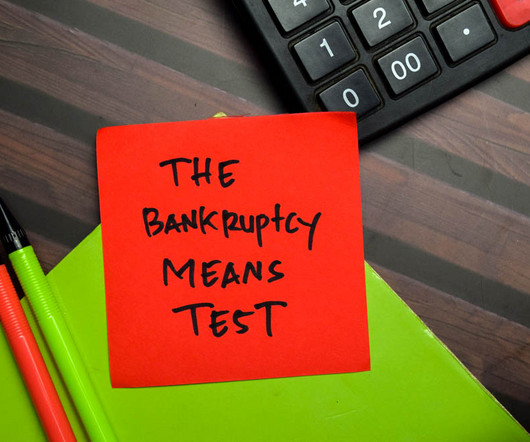Can I File Bankruptcy on Just My Credit Cards?
Sawin & Shea
AUGUST 9, 2023
You aren’t allowed to pick and choose which debt you want the bankruptcy to apply to. Briefly, unsecured debts are not backed by any collateral and include things like credit card balances and unpaid medical bills. Creditors cannot reclaim any of your property if you default on a loan. What is my total credit card debt?














Let's personalize your content